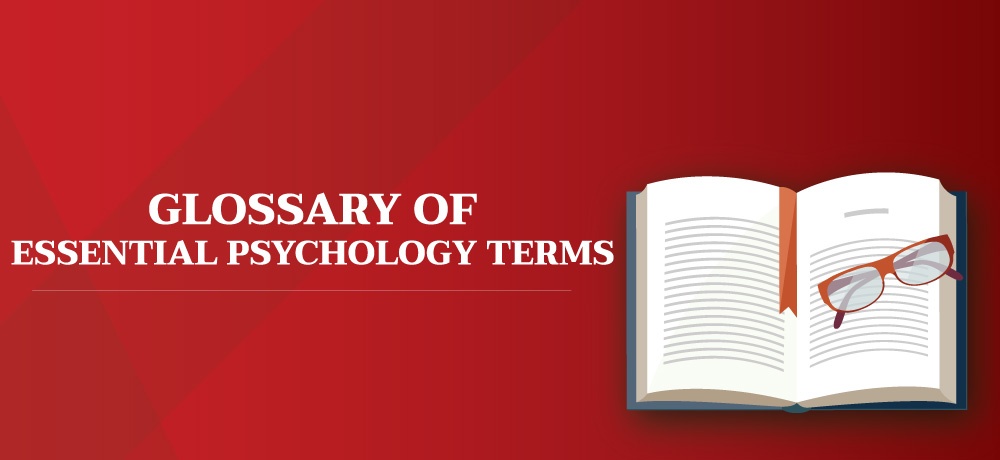A Glossary of Essential Psychology Terms

Every industry has its own language and terms. These words and phrases can be confusing to anyone who is not part of the daily operations of a specific industry, and the field of psychology is no exception.
To help you understand the terms, acronyms, and phrases regularly used in the practice of psychology, Dr. Amy G. Brown has created this handy reference guide. Here you’ll find valuable information allowing you to comprehend and communicate your mental health needs effectively.
1. Attention Deficit Hyperactivity Disorder (ADHD)
ADHD is a neurological disorder that causes a range of behavior problems. There are two types of ADHD. The first is the Inattentive Type, where individuals are distracted, disorganized, and have poor time management. The second is Hyperactive and Impulsive. Here, individuals are fidgety, act without thinking, and are usually on the go. There also is the “combined type” of both. The term ADD is no longer used.
2. Autism Spectrum Disorder (ASD or “on the spectrum”)
ASD is a disability that causes social, communication, and behavioral changes. There are two features. The first includes social difficulties, trouble with back-and-forth interaction, and inability to read cues. The second is rigid thinking, prefers routines or rituals, and is interested in very specific things.
The terms “Asperger’s Disorder” and “Pervasive Developmental Disorder” are no longer used. Instead, ASD ranges from severe to very mild.
3. Admission, Review, Dismissal (ARD)
This is the term for special education in Texas. It is a federally-funded program for students with disabilities. Specific goals are set and tracked. The student may get services in the general education classroom and/or be pulled out for specific instructions during the day.
Other states might use “Individual Education Plan” or “IEP.”
4. Section 504 Accommodation Plan.
This also is a program for students with disabilities. However, in 504, students stay in general education classes all day. They receive ‘tweaks’ or extra accommodations in order to help them with the impact of their disability.
Unlike ARD/IEP, there are no goals to track and no specialized instruction in 504.
5. School Psychologist
Every school has one: They are largely responsible for testing students to determine whether they have a disability. They might also do counseling services or behavior intervention plans.
In Texas, “School Psychologists” are called “LSSP” or Licensed Specialist in School Psychology.
6. School Counselor
This person works with all students in general education. They might provide prevention programs or teach social skills or anger classes to small groups. They often coordinate high-stakes (STAAR) testing, complete graduation plans, or serve as the 504 Coordinator. School psychologists and school counselors have very different roles.
If you’re looking for psychological testing experts in Austin, TX, reach out to Dr. Amy G. Brown and her team at Sound Mind Psychology.
As a licensed psychologist and a licensed specialist in School Psychology (LSSP), I provide high quality comprehensive psychological evaluations to persons of all ages. To learn more about how I can help you, please click here. If you have any questions about my services or other psychology-related terms, please get in touch with me here.